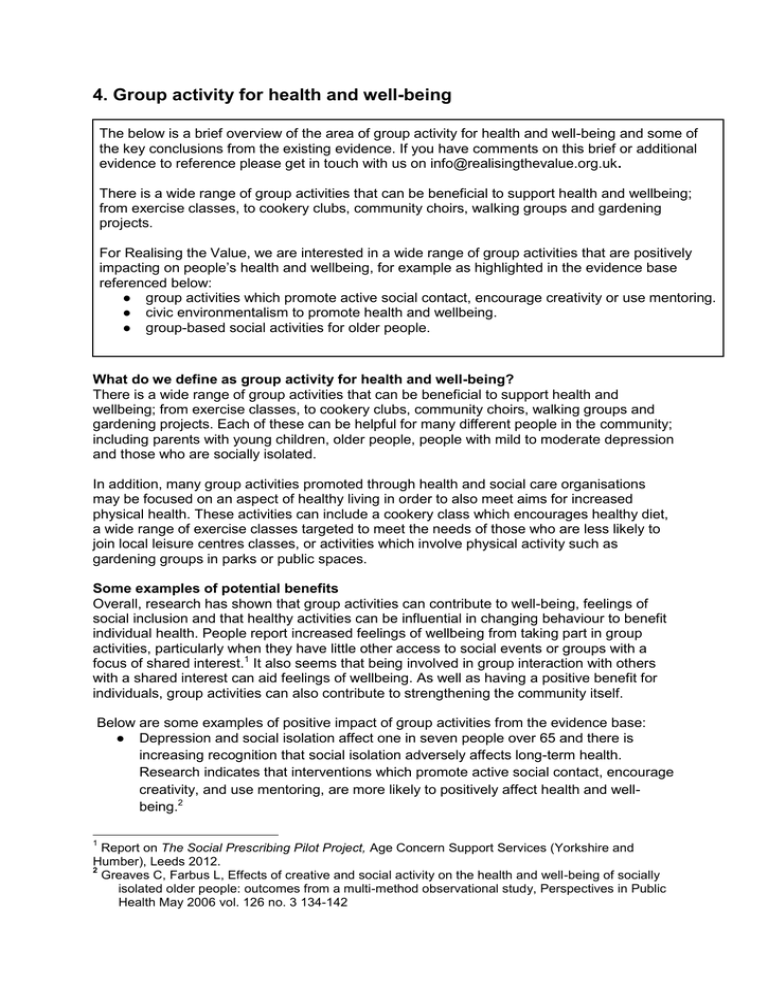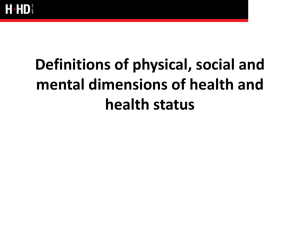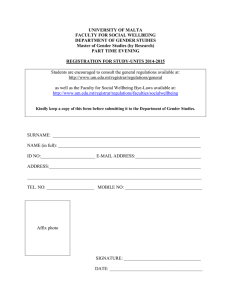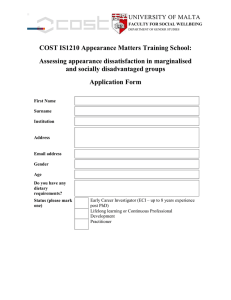4. Group activity for health and well-being
advertisement

4. Group activity for health and well-being The below is a brief overview of the area of group activity for health and well-being and some of the key conclusions from the existing evidence. If you have comments on this brief or additional evidence to reference please get in touch with us on info@realisingthevalue.org.uk. There is a wide range of group activities that can be beneficial to support health and wellbeing; from exercise classes, to cookery clubs, community choirs, walking groups and gardening projects. For Realising the Value, we are interested in a wide range of group activities that are positively impacting on people’s health and wellbeing, for example as highlighted in the evidence base referenced below: ● group activities which promote active social contact, encourage creativity or use mentoring. ● civic environmentalism to promote health and wellbeing. ● group-based social activities for older people. What do we define as group activity for health and well-being? There is a wide range of group activities that can be beneficial to support health and wellbeing; from exercise classes, to cookery clubs, community choirs, walking groups and gardening projects. Each of these can be helpful for many different people in the community; including parents with young children, older people, people with mild to moderate depression and those who are socially isolated. In addition, many group activities promoted through health and social care organisations may be focused on an aspect of healthy living in order to also meet aims for increased physical health. These activities can include a cookery class which encourages healthy diet, a wide range of exercise classes targeted to meet the needs of those who are less likely to join local leisure centres classes, or activities which involve physical activity such as gardening groups in parks or public spaces. Some examples of potential benefits Overall, research has shown that group activities can contribute to well-being, feelings of social inclusion and that healthy activities can be influential in changing behaviour to benefit individual health. People report increased feelings of wellbeing from taking part in group activities, particularly when they have little other access to social events or groups with a focus of shared interest.1 It also seems that being involved in group interaction with others with a shared interest can aid feelings of wellbeing. As well as having a positive benefit for individuals, group activities can also contribute to strengthening the community itself. Below are some examples of positive impact of group activities from the evidence base: ● Depression and social isolation affect one in seven people over 65 and there is increasing recognition that social isolation adversely affects long-term health. Research indicates that interventions which promote active social contact, encourage creativity, and use mentoring, are more likely to positively affect health and wellbeing.2 1 Report on The Social Prescribing Pilot Project, Age Concern Support Services (Yorkshire and Humber), Leeds 2012. 2 Greaves C, Farbus L, Effects of creative and social activity on the health and well-being of socially isolated older people: outcomes from a multi-method observational study, Perspectives in Public Health May 2006 vol. 126 no. 3 134-142 ● ● ● Research has taken place into the health and wellbeing benefits of civic environmentalism, defined as voluntary communal actions to promote ecosystem sustainability; for example, membership of a ‘friends of parks’ group. This research has confirmed that belonging to such a group exposes people to the benefits of the natural environment, to other people and to opportunities to make a contribution which is socially valued. There appears to be potential for the use of civic environmentalism to promote health, wellbeing and social connectedness, including for groups with identified health vulnerabilities.3 A study with socially isolated older people reported improvements in alertness, selfworth, optimism about life and positive changes in health behaviour from a range of group social activities.4 The evidence for the benefit of diet and cookery-related activities is to date fairly limited but there are exploratory studies which indicate that this can be an effective means of engaging people. Making it work From the existing evidence base, issues relating to access seem especially important to make group based activity work in practice. In particular, access for people who are not currently availing themselves of opportunities in the community, particularly those who are at risk of social isolation, depression or obesity and are not accessing free or low cost opportunities for physical activity provided through public leisure, sports and fitness facilities. Other access issues include overcoming barriers related to transport and venues, and not relying on websites and social media for services for older people. 3 Townsend M, Feel blue? Touch green! Participation in forest/woodland management as a treatment for depression, Urban Forestry and Urban Greening, October 2006 4 Greaves C, Farbus L, Effects of creative and social activity on the health and well-being of socially isolated older people: outcomes from a multi-method observational study, Perspectives in Public Health May 2006 vol. 126 no. 3 134-142





